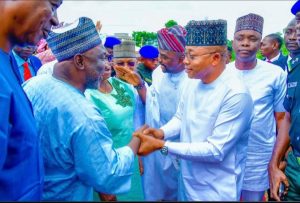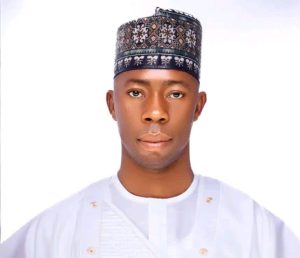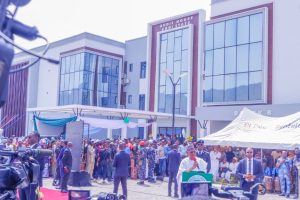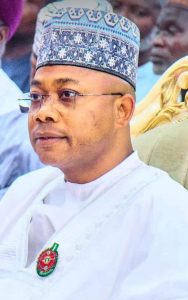Sumaila Akaba and the Ajaokuta Steel Journey; Seven Years After
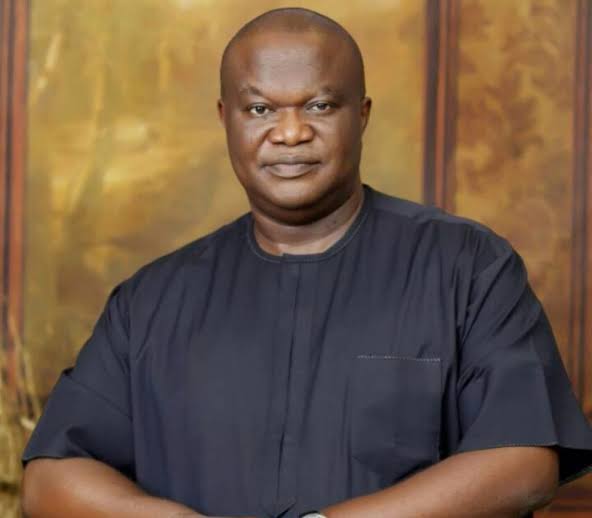
For seven remarkable years, Engr. Sumaila Abdul-Akaba has been at the forefront of a monumental task: reviving the Ajaokuta Steel Company Limited, Africa’s largest steel complex. His tenure as the Sole Administrator of the steel giant has been a testament to visionary leadership, resilience, and the pursuit of excellence in an industrial venture that had been long dormant.
When he assumed the role in 2017, the challenges were immense. Decades of neglect, mismanagement, and underfunding had left Ajaokuta giant steel in a state of near ruin, its potential unrealized, and its promise of becoming the “bedrock of Nigeria’s industrialization” unfulfilled. But Engr. Abdul-Akaba was undeterred, taking on the challenge with an unparalleled dedication to restoring the company to its original mission.
Ajaokuta Steel was conceived in the late 1970s as a cornerstone of Nigeria’s industrial aspirations. Designed to make the country self-sufficient in steel production, it was envisioned as a vital cog in the nation’s economic diversification efforts, providing the raw material for construction, manufacturing, and industrial development. However, the complex, located on a vast stretch of land in Kogi State, never realized its full potential, becoming a symbol of stalled industrial ambitions. By the time Abdul-Akaba took charge, Ajaokuta had become a relic of failed policies and missed opportunities. Yet, Abdul-Akaba saw something different—he saw a giant that could be awakened.
One of the first tasks Engr. Abdul-Akaba undertook was to fully understand the technical state of the steel complex. He brought together teams of international technical experts and industry consultants to assess the equipment and infrastructure. Years of neglect had left much of the plant’s machinery in need of repair or replacement, and a clear roadmap was needed to bring it back to life. The audits revealed that several critical components of the plant, including the rolling mills, blast furnace, and power supply systems, needed urgent attention. Abdul-Akaba spearheaded efforts to revamp these essential parts of the plant, and his leadership played a crucial role in stabilizing operations, ensuring that the plant’s facilities could one day be fully operational.
Abdul-Akaba also focused heavily on developing the human resources required to sustain such a complex operation. The steel industry is technically demanding, and Ajaokuta’s workforce needed to be re-trained to handle the modern demands of steel production. Under Abdul-Akaba’s watch, several training and reskilling programs were implemented. This not only enhanced the skill sets of existing staff but also created opportunities for young engineers and technicians to enter the industry. His vision for Ajaokuta was not only about the plant but about building a pipeline of skilled professionals who could sustain the steel industry in Nigeria for generations to come.
During his tenure, Abdul-Akaba achieved several key milestones that have moved Ajaokuta Steel closer to its operational goals. One of his significant achievements was the completion of several crucial units within the steel plant. The Thermal Power Plant, which had long been non-functional, was brought back online under his leadership. This power plant is essential for the smooth operation of the steel production process, and its revival was a major step toward Ajaokuta’s long-term sustainability. Additionally, the Rolling Mills, which form a vital part of the steel-making process, were upgraded and made ready for production. These achievements marked a turning point for Ajaokuta, transforming it from a dormant industrial site into a complex that is once again capable of producing steel.
A key part of Abdul-Akaba’s strategy was forging strategic partnerships with international steel companies and technical experts. Recognizing the need for foreign investment and technical support, he worked to re-establish relationships with countries that had been involved in Ajaokuta’s early development, particularly Russia, which had originally provided much of the technical expertise for the plant. These partnerships have helped bring in vital technical advice and investment that were instrumental in moving the project forward. One such agreement, the Russian technical support initiative, re-engaged Russian engineers to provide the specialized knowledge required to revamp the complex.
Dr Sumaila Abdul -Akaba’s stunt ignited revitalization strategies that breathed new life into the vulnerable institution. It began with a thorough human resources audit, laying the groundwork for a tripartite plan of short term objectives of unlocking dormant potential,optimizing assets and streamlining operations to foster efficiency, including the mid-term goals that saw the elevation of staff expertise through targeted training and the long term vision that came with sweeping modernization that saw the unleashing of the steel giant’s full capacity and propelling it to unparalleled heights as Africa’s premier steel producer
Another significant achievement was the revival of the Itakpe-Ajaokuta-Warri railway, which had been abandoned for decades. This railway is a critical piece of infrastructure for the transport of raw materials to and finished products from the Ajaokuta plant. Under Abdul-Akaba’s leadership, the rail line was rehabilitated, restoring a vital link that will enable the plant to efficiently transport steel products across the country and beyond.
Throughout his tenure, Abdul-Akaba remained committed to Nigeria’s broader goal of economic diversification. The revitalization of Ajaokuta Steel was not just about the production of steel; it was about reducing the country’s dependence on imported steel, creating jobs, and supporting local industries. Abdul-Akaba’s leadership aligned with Nigeria’s industrialization agenda, as outlined by President Muhammadu Buhari’s government, making Ajaokuta a key player in the drive for local content and self-sufficiency. The potential economic impact of a fully operational Ajaokuta Steel is enormous, with the plant expected to generate thousands of jobs and position Nigeria as a major player in Africa’s steel industry.
Sustainability was another key focus of Abdul-Akaba’s administration. He was keenly aware of the environmental impact of steel production and took proactive steps to ensure that Ajaokuta’s operations would be environmentally sustainable. By introducing green practices and emphasizing responsible mining and industrial practices, he ensured that the revival of the steel plant would not come at the cost of Nigeria’s environmental health.
Now, as Engr. Sumaila Abdul-Akaba steps down after seven years of transformative leadership, his legacy is clear. Ajaokuta Steel, once written off as a failed project, is now well on its way to becoming the industrial giant it was meant to be. Abdul-Akaba’s achievements in reviving key units of the plant, securing international partnerships, and focusing on human capital development have laid the groundwork for the future. His tenure represents a defining chapter in the history of Nigeria’s industrial development, and his contributions will be felt long after he has left the helm.
By Abdullahi O. Haruna Haruspice




